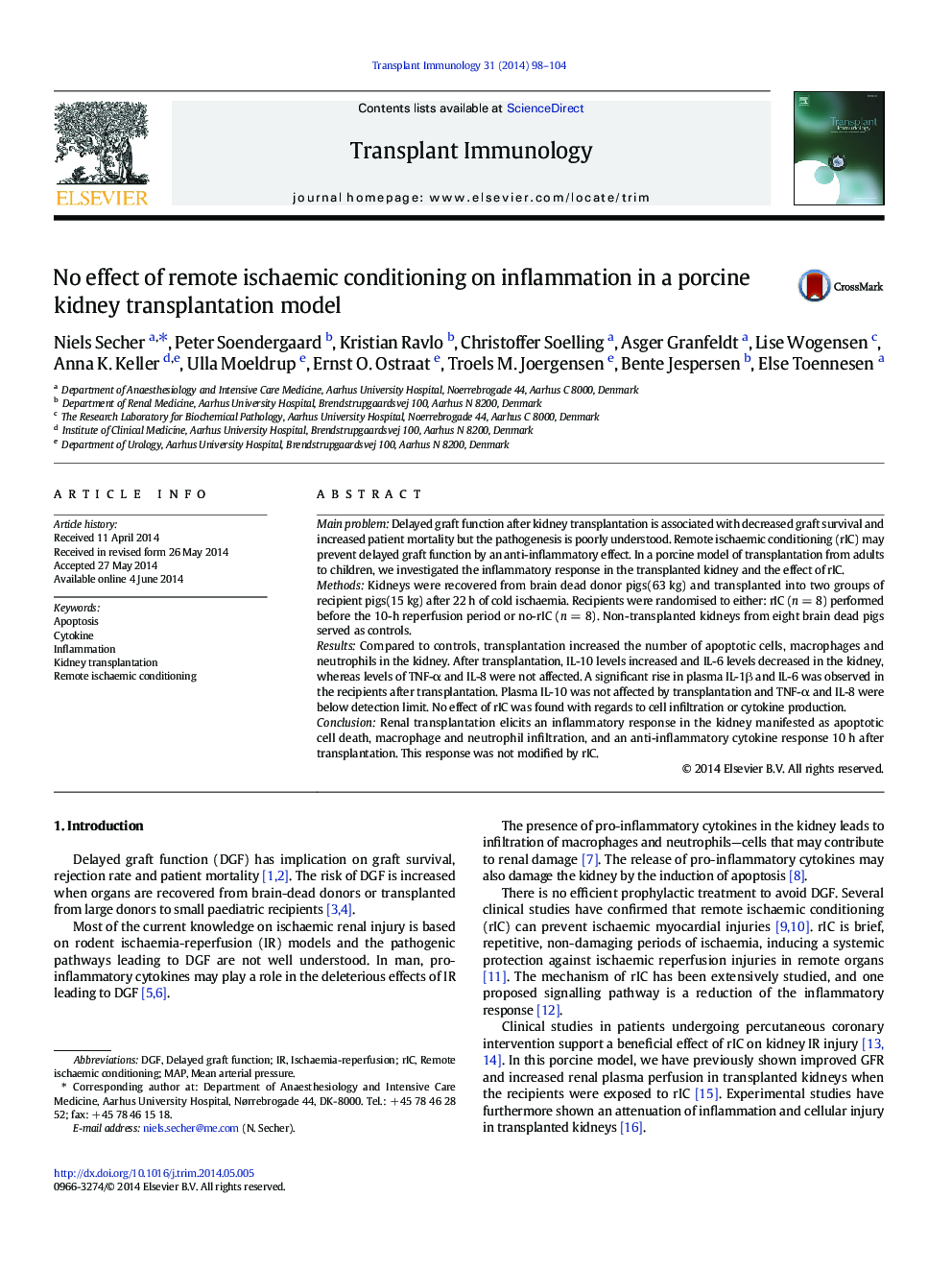| Article ID | Journal | Published Year | Pages | File Type |
|---|---|---|---|---|
| 3392086 | Transplant Immunology | 2014 | 7 Pages |
Main problemDelayed graft function after kidney transplantation is associated with decreased graft survival and increased patient mortality but the pathogenesis is poorly understood. Remote ischaemic conditioning (rIC) may prevent delayed graft function by an anti-inflammatory effect. In a porcine model of transplantation from adults to children, we investigated the inflammatory response in the transplanted kidney and the effect of rIC.MethodsKidneys were recovered from brain dead donor pigs(63 kg) and transplanted into two groups of recipient pigs(15 kg) after 22 h of cold ischaemia. Recipients were randomised to either: rIC (n = 8) performed before the 10-h reperfusion period or no-rIC (n = 8). Non-transplanted kidneys from eight brain dead pigs served as controls.ResultsCompared to controls, transplantation increased the number of apoptotic cells, macrophages and neutrophils in the kidney. After transplantation, IL-10 levels increased and IL-6 levels decreased in the kidney, whereas levels of TNF-α and IL-8 were not affected. A significant rise in plasma IL-1β and IL-6 was observed in the recipients after transplantation. Plasma IL-10 was not affected by transplantation and TNF-α and IL-8 were below detection limit. No effect of rIC was found with regards to cell infiltration or cytokine production.ConclusionRenal transplantation elicits an inflammatory response in the kidney manifested as apoptotic cell death, macrophage and neutrophil infiltration, and an anti-inflammatory cytokine response 10 h after transplantation. This response was not modified by rIC.
